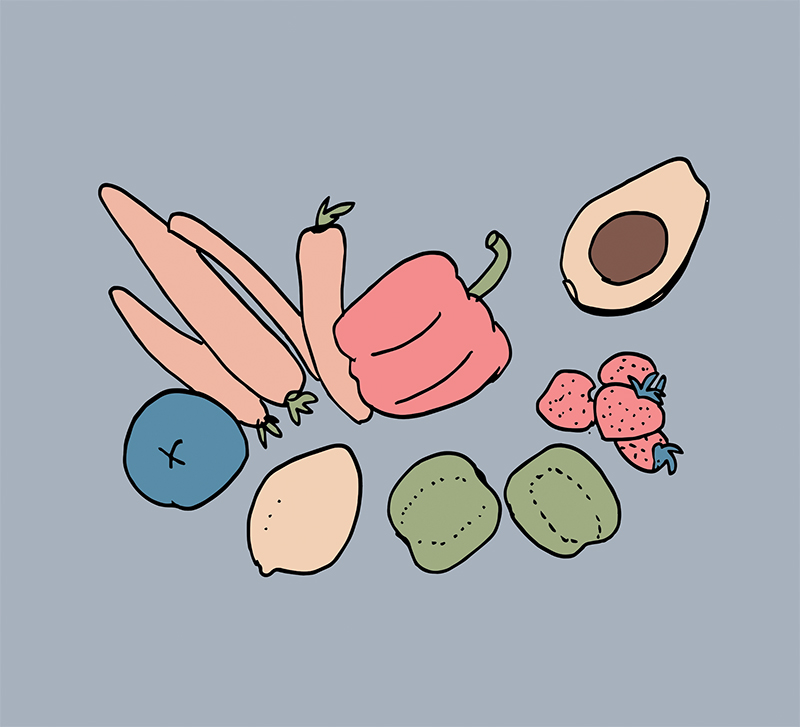Concordia Food Coalition seeks to make food services financially sustainable, student-run
In May 2015, Concordia University awarded Aramark Corporation the school’s food services contract, which made the company the main provider of food services on campus.
Aramark was brought on with the promise of providing more vegan and fair-trade options over five years, with the option for Concordia to renew that contract for two separate one-year extensions.
Despite three years remaining to that initial contract, the Concordia Food Coalition (CFC) is already preparing to make a bid for the contract when it expires in 2020. The CFC is a branch of the Concordia Student Union (CSU) whose mission is to “facilitate a transition to a more sustainable food system in collaboration with organizations at Concordia,” according to their website.
At the moment, the organization is campaigning to increase their fee levy from $0.08 to $0.16 per student per credit, which would more than double their annual revenue, from $55,300 to $117,263. If enough students vote in favour of the increase, it would take effect at the beginning of the 2018-19 academic year.
“The end goal of the CFC is to take over the food system at Concordia and implement student-run, sustainable, healthy [food] options,” said CSU councillor Rowan Gaudet, who is acting as the CFC’s campaign manager. “The increase in fee levy is just one of the steps towards that. […] The fees just get us more resources.”
In addition to making more of the university’s food systems student-run, the CFC wants to eventually wean some of the larger food services off of school funds and make them financially sustainable, according to Gaudet.
Gaudet and CFC volunteer Samuel Oslund both cited the Hive Cafes and the Concordia farmer’s market as examples of what student-run, financially sustainable food services on campus would look like. The Hive used to be a working group within the CFC but has since “graduated,” Gaudet explained. Initiatives such as the farmer’s market that “graduate” and become financially sustainable are still run by the CFC, he added. However, they no longer depend on funding from the university.
According to the CFC’s proposed 2018 budget plan, which is based on a successful fee levy increase, the additional capital would result in an increase in the organization’s payroll expenses from $31,200 to $76,843. The CFC will add a paid Concordia farmer’s market coordinator position as well as develop an employee health insurance plan. The fee levy would allow for the external and internal coordinators to increase their hours from 15 to 25 hours a week.
Oslund further discussed the CFC’s goal to provide students with locally grown, organic food at a more affordable price and focus on making healthy food options more accessible to students.
“The CFC is formed as the backbone of the food movement here at Concordia. It’s the behind-the-scenes push for a lot of the student-led food movements,” Gaudet said. “Voting for the CFC fee levy increase is voting for student-led food.” All undergraduate students are eligible to vote.
The budget the CFC has provided also includes a plan to decrease the organization’s deficit from $31,912 to $3,174 by the end of 2018. Without the potential increase in funds from the fee levy, the CFC’s deficit is projected to be $24,099.
Out of the $117,263 the CFC would receive in the event of the fee levy increase, they have budgeted $10,800 for project expenses in 2018, which would be a decrease from the $15,425 the group budgeted for 2017. This decrease will take effect even if the fee levy increase isn’t approved, and can be partially attributed to the fact that returning groups will receive a maximum of $1,000 from the CFC next year. In addition, the Hudson Community Farms will not be reapplying for their $3,500 in funding next year.
Students can vote on the CFC fee levy increase during the CSU by-elections on Nov. 28, 29 and 30.
Graphic by Zeze Le Lin




